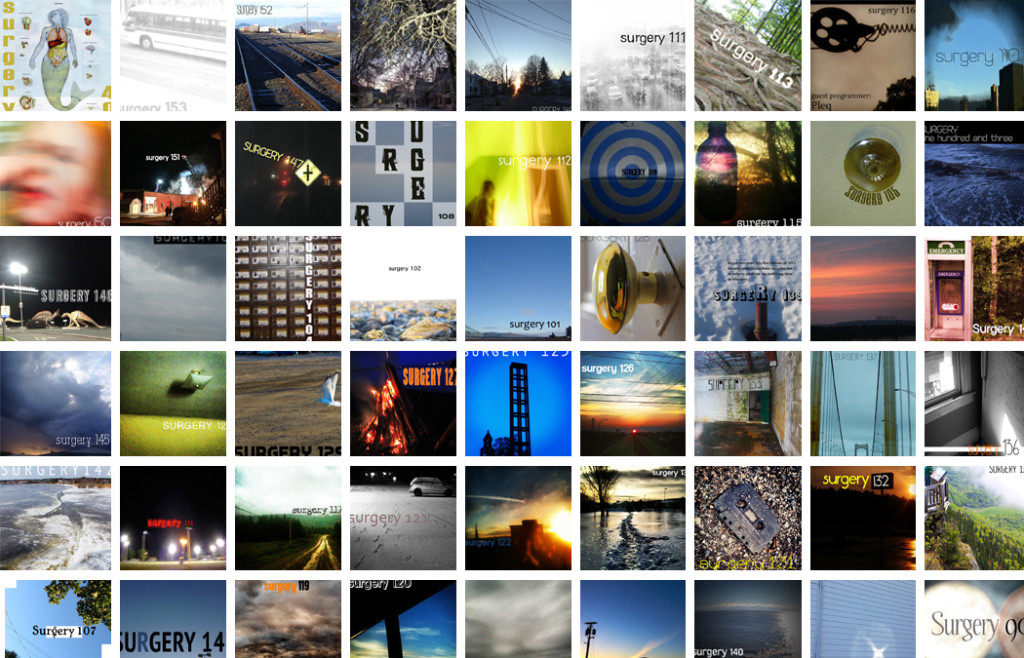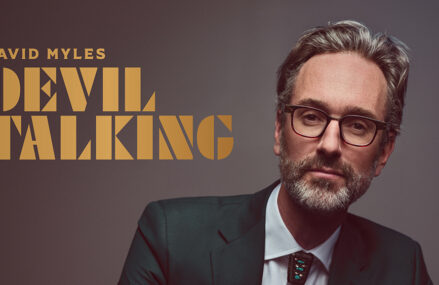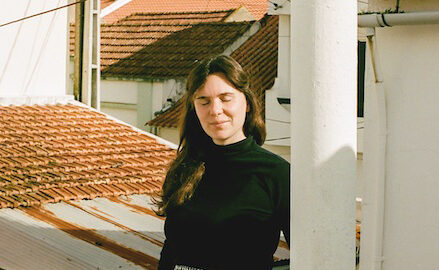Fredericton’s longest running podcast explores music’s outer limits.

How often does your pursuit of all things local ever lead to podcasts? Probably not that often. With that in mind, there’s a strong possibility you’ve never heard of Surgery Radio. And that’s your loss.
For almost 20 years now Eric Hill has been exploring the strange, off-centre and experimental world of music through various forms of media. He is both a performer and a connoisseur of avant garde sounds and has been curating his latest finds into one hour episodes for longer than most of us have ever continuously pursued an interest or hobby.
What began as a radio show on CHSR eventually evolved into a regular podcast in 2004. Now over 150 episodes deep, Surgery Radio continues to take us where most ears haven’t gone before.
We caught up with Eric to learn more about the show and his ongoing exploration of the sonic landscape.
When did you start Surgery Radio and how did the project come about?
Surgery began as a radio show on CHSR back in 1999 coinciding with a shift in my listening towards more experimental music. Back then it was first called “The Y2K-Mart” then in 2000 when that wasn’t funny anymore I called it perMUTATIONS for a while. Around 2004 it was getting harder to motivate myself to do a weekly show, and podcasting was starting to take off, so I started doing it online as a stream and/or download rebranded as Surgery Radio. I had a bit of space donated to me on the UNB server and hosted on a Blogspot page. Eventually the bandwidth required to maintain it was exceeding UNB’s good graces so I moved it to Podbean where it lives now.
How would you describe the music you present?
Experimental is the one word catch all, but in fact it crosses a variety of genres and subgenres. Early on I tried to include everything from harsh noise stuff, like Merzbow, to very quiet ambient electronic, like Richard Chartier… and with all the stuff in between like free jazz, drone, new classical, and so on. For the last couple of years I’ve honed in on ambient electronic, experimental pop/beats, and home classical, a fancy new term for bedroom recorders who like composing on classical instruments, mostly solo, rather than for orchestras. The key for me is to try and develop a programming that’s somewhat consistent, but still broad enough that it can encompass a mix of sounds that keeps the listener wondering what’s next.
You don’t include any preshow preamble and conversation of any kind. Surgery Radio is strictly music. Has that always been the format you have used? What is it about the “hostless” format that resonates with you?
When I first started doing the podcast I tried to record brief between song intros and bits of information, but I found that… unlike when it’s done spontaneously live on air… it never sounded anything but stilted and lifeless. So instead I just recorded an intro “sting” that I use off the top and roughly halfway through the hour long program. Though I do miss the passing along of information it really cuts down on production time. And since it is presented online and we are living in a click-driven age, I include links to each artists and/or label in every show’s track listing so people can investigate things that catch their ear.
Your program has nearly 15,000 downloads across 88 episodes. That’s a really impressive response. What is it about Surgery Radio that you feel helps generate such strong connections with its listenership?
It’s hard to say for certain. I imagine sheer longevity is a factor. But also the fan base for the kind of music I present is fairly small in comparison to mainstream music, but it is very very dedicated.
After nearly 20 years of programming the show, what is the motivation that continues to inspire you to produce Surgery Radio?
Well, I guess first and foremost I still really love this music… and having to try and maintain a schedule keeps me digging for new and undiscovered-by-me stuff every couple of weeks. It pays off as I continually find new artists whose work I find thrilling and it fuels me to check out festivals like OBEY convention in Halifax, FIMAV in Victoriaville, QC or MUTEK in Montreal and see where this scene lives and breathes. I get the same kind of gratification turning someone onto a cool new band at Backstreet (my record store day job), but a lot of the stuff from Surgery would be a hard sell, literally, for most customers… so I’m glad to have an outlet for my sake and, hopefully, for the listener’s continued enjoyment.




